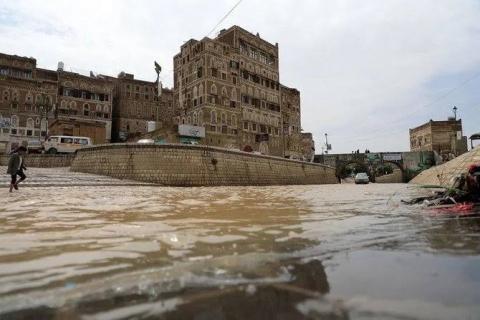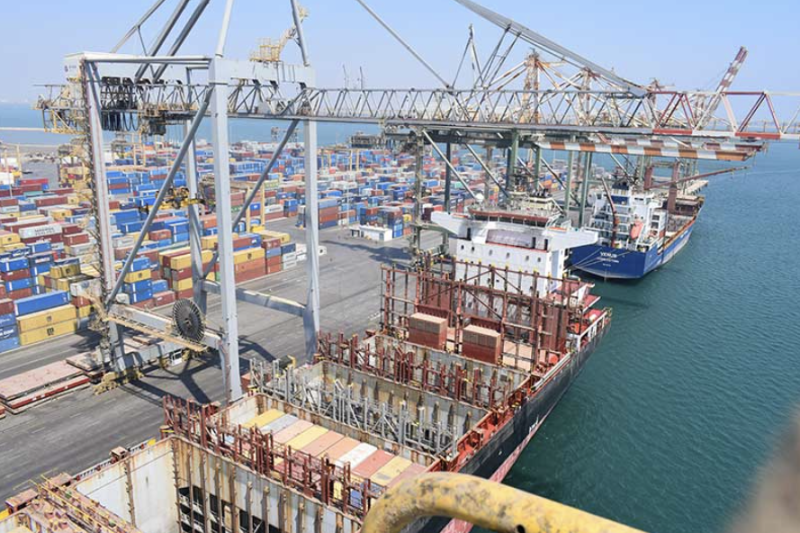Scaling up Impact for Recovery and Resilience in Yemen


STORY HIGHLIGHTS
Emergency Crisis Response Project (ECRP) provided safety nets and social services to communities in 321 of Yemen’s 333 districts.
The project boosted economic activity through cash-for-work projects that supported small businesses and benefited vulnerable households.
18,930 youth from Village Cooperative Councils (VCCs) were mobilized to raise awareness about COVID-19 prevention.
Amid heightened conflict, many Yemenis are trapped in a living nightmare - struggling on a daily basis to find food, work, medicine, or shelter. Prices are inflated to the point where many can no longer cover the cost of basics. The United Nations estimates that over five million people are on the brink of famine and 2.3 million children under the age of five need immediate treatment for acute malnutrition.
Against this daunting backdrop, the World Bank’s International Development Association (IDA) – has worked since 2016 to restore local capacity to deliver services and to help Yemenis reduce dependency on aid and become more self-reliant. The Emergency Crisis Response Project (ECRP) is implemented on the ground by two Yemeni institutions, the Social Fund for Development (SFD) and the Public Works Project (PWP), in partnership with the United Nations Development Programme (UNDP) and the United Nations Children's Fund (UNICEF)
The project also seeks to support Yemenis by funding cash for work projects that help people regain access to key services, earning wages to allow them to purchase basic goods for themselves and their families, supporting micro and small businesses to generate income and livelihoods, and – most importantly – restoring hope. Implemented in over 321 of Yemen’s 333 districts, the project benefits vulnerable local households and communities. Since it was approved in July 2016, the project has:
Created work opportunities: Nearly 443,000 people (30% women, 19% IDPs/Returnees, 60% youth) have been provided with wage employment and skills training. Jobs have been created in small-scale community infrastructure, giving Yemenis the opportunity to build back their communities.
**Supported Micro-, Small, and Medium-sized Enterprises: **More than 53,000 micro and small businesses have received financial support from five microfinance institutions recapitalized under the project. The project has also directly provided 16,700 micro-and small businesses that were on the verge of collapse with access to finance and to markets. This has enabled them to continue to provide goods and services in their local communities and to create employment benefitting around 63,332 individuals.
**Improved food security: **Nearly 24,000 hectares of farmland have been rehabilitated and 63,332 farmers, fishers, livestock keepers, and beekeepers—about 20% of them women—have been helped to increase their output and boost their income. In addition, 7,719 farmers in rural areas have been trained and provided with equipment, enabling them to practice modern farming techniques to improve productivity and save on the cost of fuel and water. This has created nearly 47,500 additional jobs.
Cash transfers and child nutrition: According to the World Health Organization, poor nutrition contributes to about 45% of deaths in children under the age of five in Yemen. It also places the country’s future at risk, leaving the physical and neurological growth of millions of children stunted. Cash transfers have been used by Yemen’s SFD in place of direct food distribution, providing support to over 275,197 mothers, along with guidance on child nutrition and care, resulting in the treatment of over 403,526 children.
**COVID-19 Response: **The project has adapted its assistance to help prepare for COVID-19 shocks. Around 200,000 individuals, 42,000 households and 2,300 Small and Micro Enterprises (SMEs) received awareness-raising materials. In addition, 18,930 youth members from the Village Cooperative Councils (VCCs) were mobilized to raise awareness in more than 2,000 hard-to-reach villages, and over 100,000 masks made by youth were distributed along with more than 100,000 leaflets about COVID-19 prevention.

Aden -- Yemen Airways has announced the cancellation of the mandatory round-trip ticket requirement for passengers traveling from Yemen to Saudi Ar…

Aden — Ports under the authority of Yemen’s internationally recognized government have received more than two million metric tons of fu…

Mukalla — Local authorities in Hadramout have announced the inauguration of Yemen’s first solar-powered cement station, a landmark proj…